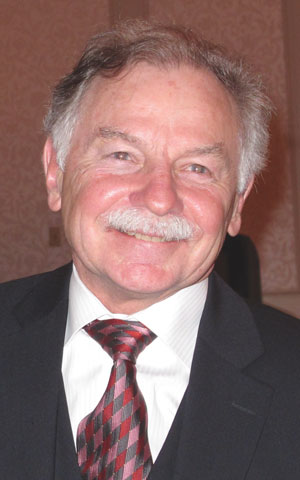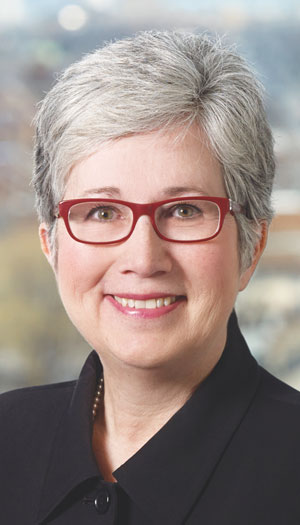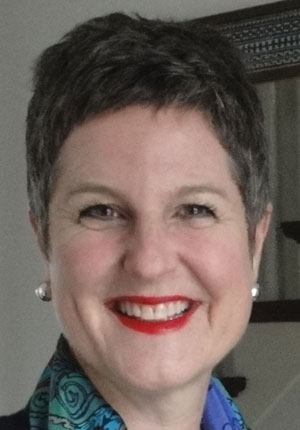On Feb. 28, Toronto lawyer Bill Trudell answered a surprise call from Law Society of Upper Canada Treasurer Tom Conway telling him he was among the 2014 recipients of the law society medal.
Trudell notes it wouldn’t have been a surprise if he received another call at any moment telling him it was a huge mistake.

Trudell is a familiar face and voice at the law society where he often defends lawyers at disciplinary hearings. In fact, he’s a vociferous critic of the regulator on many issues, including when it comes to the lack of duty counsel and transparency.
But on the phone, Conway was congratulating Trudell on receiving an honour conferred upon the best in the profession. The call came with an admission: “We’re giving an award to our biggest critic.”
The next day, he received a letter from Conway confirming the honour. “That’s when I knew he wasn’t kidding,” says Trudell.
“It’s pretty cool because I spend every day of my life fighting the law society, and now they’ve decided to give me a medal,” Trudell adds with a chuckle.
“It’s sort of symbolic of how great this profession is. I really didn’t expect to get this recognition but I’m really honoured.”
In its announcement, the law society said Trudell is “widely respected as a dedicated and passionate advocate.”
This year’s law society medal recipients also include Frank Bowman, a Dentons Canada LLP litigation partner honoured as “an outstanding litigator with an unparalleled work ethic,” and retired Toronto lawyer Clare Lewis. The award recognizes him for his work in protecting the rights and treatment of citizens dealing with government.
Also honoured are former law society treasurer and WeirFoulds LLP partner Derry Millar, a lawyer recognized as “a consummate advocate dedicated to the advancement of the legal profession,” and Hamilton, Ont., estate and corporate law practitioner Sandra Stephenson.
Lerners LLP partner Nigel Gilby will receive the Lincoln Alexander award for his commitment to the public through community service. The law society is awarding the Laura Legge award to Susan Opler and the distinguished paralegal award to Paula Stamp. All will receive their awards in May.
Stephenson, like Trudell, says she was “overwhelmed” when Conway called. She’s now among the few lawyers who can boast of the honour in Hamilton, the city Stephenson has committed herself to serving.
After almost 25 years of law practice at Lazier Hickey LLP, Stephenson joined Evans Sweeny Bordin LLP. John Evans of the same firm is a past recipient of the law society medal.
Stephenson doesn’t remember what Conway said on the phone about why she was getting the medal as she “was so blown away.” But she thinks the recognition most likely has to do with her community involvement in Hamilton. Over the years, Stephenson has done lots of work on fighting poverty in Hamilton. She has sat on several hospital and law association boards and served as the president of the Rotary Club of Hamilton.
“Hamilton is a unique community in that we have a lot of issues around poverty. . . . There are concentrations of poverty in the north end of Hamilton. For me, it’s always been important as a lawyer to give something back to my community,” she says.

Stephenson is “applauded by her peers and clients for her honesty, integrity, leadership, and collaborative skills,” the law society award announcement said, noting her reputation for mentoring young lawyers starting their careers.
“An important part of what we do as lawyers is to train the next generation,” says Stephenson.
“The neat thing about the Hamilton bar, which you may not know about, is that it’s a very collegial bar, so any of us can call any of our colleagues and just ask questions.”
Mentorship is also important for Opler, a vice chairwoman of the Consent and Capacity Board and the recipient of this year’s Laura Legge award that honours a lawyer who has shown exemplary leadership. In fact, a colleague she had mentored nominated her for the award.
“I have been lucky throughout my career to have wonderful mentors and role models myself and have tried very hard to pay it forward by providing that for others,” says Opler.
Known for her skills in teaching adjudication to others, Opler says she has always been passionate about the idea of a fair hearing.
“I believe that the justice system must provide a real voice, as well as a dignified, respectful, and fair hearing for society’s most vulnerable members,” she says.
She notes she learned the ropes of adjudication from mentors at the Consent and Capacity Board. “I seized every learning opportunity available. I still do as I strive to become a more effective adjudicator in whatever forum I am serving.”
For his part, Trudell also credits the people he’s worked with for much of his success.
“It’s the situations and the people that you work with that make these kinds of awards possible. There’s no question about that,” he says.
Part of the first graduating class of the University of Windsor Faculty of Law, Trudell practised law at Osler Hoskin & Harcourt LLP before launching a private criminal practice.

At Oslers, Trudell notes he worked with justice Bertha Wilson, the first woman to join the Supreme Court bench, and many other “tremendous” lawyers who became judges.
“Over the years, I associated with a number of really great people,” he adds. “I had incredible work. I had many, many murder trials. I was really lucky with the people I worked with . . . . It’s just enormously smart people who have helped me through the years.”
Trudell notes he relies on the people around him so much that there’s a rumour around his office that he never reads a case. “I just think there’s something wrong with a case and then I have brilliant people to help me find the answer,” he says with a laugh.
Trudell has participated in many high-profile cases and inquiries, including the Walkerton inquiry into the contamination of the water supply in Walkerton, Ont.
He has also served as a director of the Criminal Lawyers’ Association, the John Howard Society, and The Advocates’ Society.
As chairman of the Canadian Council of Criminal Defence Lawyers, he has appeared before Parliament to speak about issues in the justice system. The issue of mental illness in the criminal justice system is close to his heart. Two years ago, he tried to convince members of the Senate to reject legislation on mandatory minimum sentences without an exception for people with mental-health issues.
“It was a remarkable day,” he recalls. “After that meeting, a number of senators came up to me and said that they had experienced mental-health issues or they knew of people [who did] and I was really impressed by the willingness to recognize it as a problem,” he says.
“The issue of mental health is an important one and I don’t think the government in Ottawa is paying more than lip service to it.”

 Trudell is a familiar face and voice at the law society where he often defends lawyers at disciplinary hearings. In fact, he’s a vociferous critic of the regulator on many issues, including when it comes to the lack of duty counsel and transparency.
Trudell is a familiar face and voice at the law society where he often defends lawyers at disciplinary hearings. In fact, he’s a vociferous critic of the regulator on many issues, including when it comes to the lack of duty counsel and transparency. Stephenson is “applauded by her peers and clients for her honesty, integrity, leadership, and collaborative skills,” the law society award announcement said, noting her reputation for mentoring young lawyers starting their careers.
Stephenson is “applauded by her peers and clients for her honesty, integrity, leadership, and collaborative skills,” the law society award announcement said, noting her reputation for mentoring young lawyers starting their careers. At Oslers, Trudell notes he worked with justice Bertha Wilson, the first woman to join the Supreme Court bench, and many other “tremendous” lawyers who became judges.
At Oslers, Trudell notes he worked with justice Bertha Wilson, the first woman to join the Supreme Court bench, and many other “tremendous” lawyers who became judges.